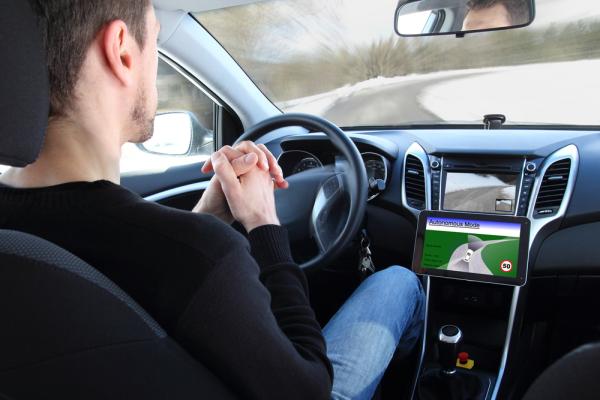After decades of steady declines taking place year after year, in 2015 we witnessed a hefty spike in the number of fatal car crashes on the nation's roads with more that 30,000 Americans losing their lives.
Meanwhile, technology continually marches on, presenting consumers a series of new safety features – as well as the prospect of the holy-grail of automobile engineering – the self-driving car.
Safety-conscious Americans would surely be looking to add more "auto" – as in automatic – to their automobile, yes?
On the contrary, for the most part.
As it turns out, the majority of U.S. motorists are increasingly steering clear of cars that drive themselves.
Except for one age-group of adults, drivers are even more distrustful of self-driving cars then they were a year ago, according to a new survey conducted by J.D. Power, the consumer-research organization. However, aside from the idea of yielding control of the vehicle, there is "interest in emergency braking and steering system technology" – as long as drivers can keep their hands on the wheel.
"Compared with 2016, 11% more Gen Z consumers and 9% more Pre-Boomers say they 'definitely would not' trust automated technology," the firm announced referring to the two groups, those born after 1995, and those 70 and older, respectively. "However, similar to the 2016 study, consumers this year show great interest in collision protection and driving assistance technology."
The only adult group that was not skeptical of self-driving cars was "Generation Y" or millennials, those approximately between the ages of 23 and 38.
More than 8,500 consumers who either purchased or leased a car within the last five years were surveyed by J.D. Power, which conducted the poll named the "2017 U.S. Tech Choice Study," the latest of three annual surveys of this type.
The results were similar to those collected by the American Automobile Association, which after surveying drivers announced in March that 75 percent of "U.S. drivers report feeling 'afraid' to ride in a self-driving car, and only 10 percent report that they’d actually feel safer sharing the roads with driverless vehicles." Also similar was the finding that nearly 60 percent of motorists are interested in some of the new safety features that could assist them while driving.
Drivers' fear of automated cars was unchanged from 2016, the AAA stated, when it learned that three of four respondents opposed using self-driving vehicles.
Another noteworthy finding from the J.D. Power survey was that "40% of Boomers [roughly aged 53 to 71] do not see any benefits to self-driving vehicles."
 Among 10 driver-assist features the respondents were asked to consider, the six that drivers expressed the most interest were:
Among 10 driver-assist features the respondents were asked to consider, the six that drivers expressed the most interest were:
- smart headlights
- camera rear-view mirror
- emergency braking and steering system
- lane change assist
- camera side-view mirrors
- advanced windshield display
According to a report titled "Traffic Safety Facts 2015" – containing the latest statistics compiled by the National Highway Traffic Safety Administration – more than 2.3 million people that year were injured in car crashes, a figure that included pedestrians and cyclists. As the adjacent image illustrates (courtesy: Shutterstock), emergency braking technology is being promoted as a way to reduce these type of incidents from occurring.




